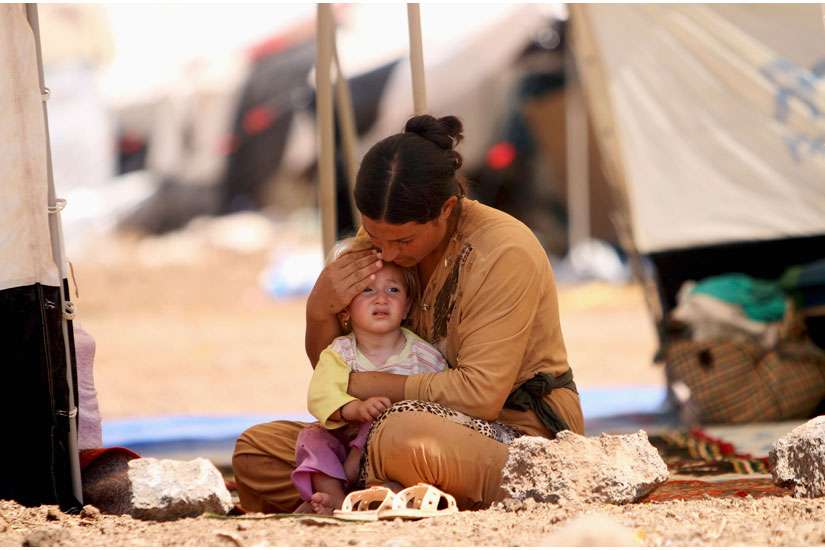Speaking at UNESCO in Paris April 25, the cardinal said Christians were "irreplaceable peacemakers" and, without them, "Islam will fall into the hands of fundamentalists." He called on Europe and the international community "to ensure that Christians remain in their countries."
The first condition to save this presence, he said, is "the resolution of the Israeli-Palestinian conflict."
The speech at UNESCO was on the first day of a four-day visit to France, where the cardinal inaugurated the new Maronite Diocese in Meudon, outside of Paris. There are approximately 85,000 Maronite Catholics in France.
In his speech, the cardinal pleaded for an end to the ongoing conflicts, particularly in Syria, Iraq and Yemen, "through political negotiations and dialogue between the conflicting parties."
"Stop supporting the belligerents with arms and money," he urged. Instead, he said, "It is essential to assist countries in the region to emerge from the bloody conflicts that consume them, peoples and civilizations."
Rai also spoke on behalf of people uprooted from their homes in the region.
"I came to UNESCO to bring the voice of those who had it taken from them. I come here to vouch for the plight of millions of refugees, displaced people, children and seniors, women and men who lost loved ones, who had their country and property stolen, their future destroyed," he said.
Lebanon is now hosting more than 1.5 million Syrian refugees. In April, Antonio Guterres, UN high commissioner for refugees, said that would be the equivalent of 80 million refugees entering the United States.
Thousands of Christian Iraqi families have also come to Lebanon since the Islamic State's takeover of Mosul and the Ninevah Plain last summer.
Prior to the influx of refugees, approximately 33 per cent of Lebanon's existing population of about four million was Christian.
That sectarian equation has shifted, as most of the Syrian refugees are Muslim.
Rai was scheduled to meet French President Francois Hollande April 28. High on the agenda, in addition to the crisis of the Christian presence in the region, was Lebanon's presidential vacuum. Under Lebanon's power-sharing system, the post is reserved for a Maronite but has been vacant since May, when the term of Michel Sleiman ended without the election of a successor due to ongoing disputes between rival political parties over a compromise candidate.


